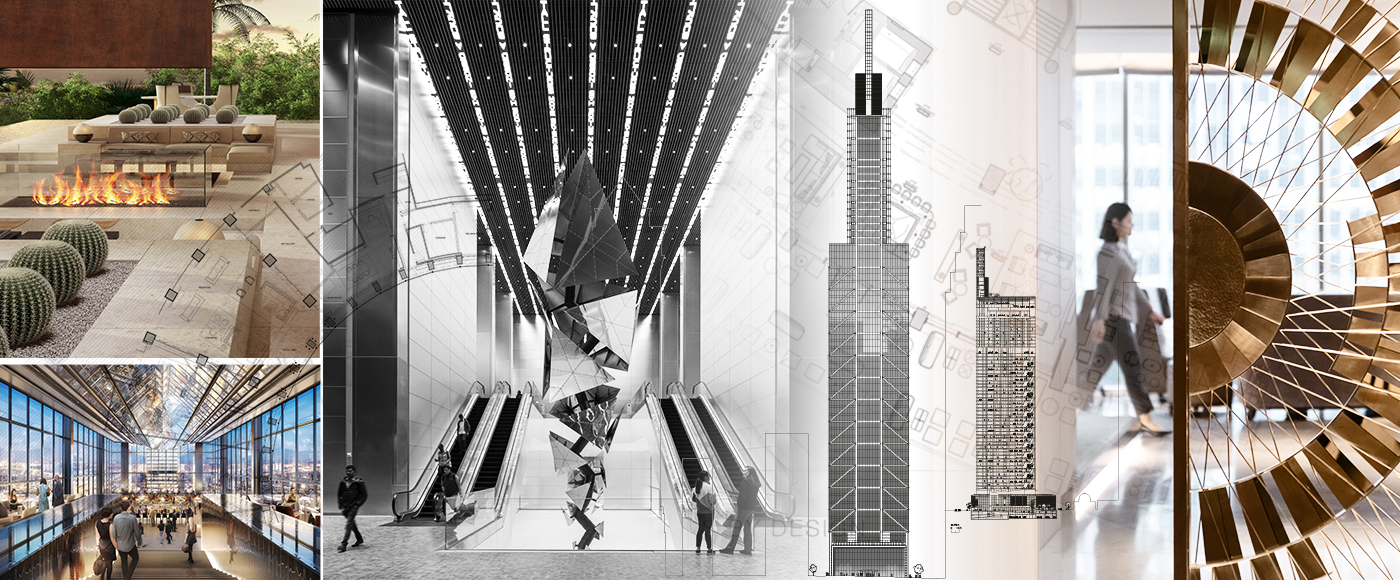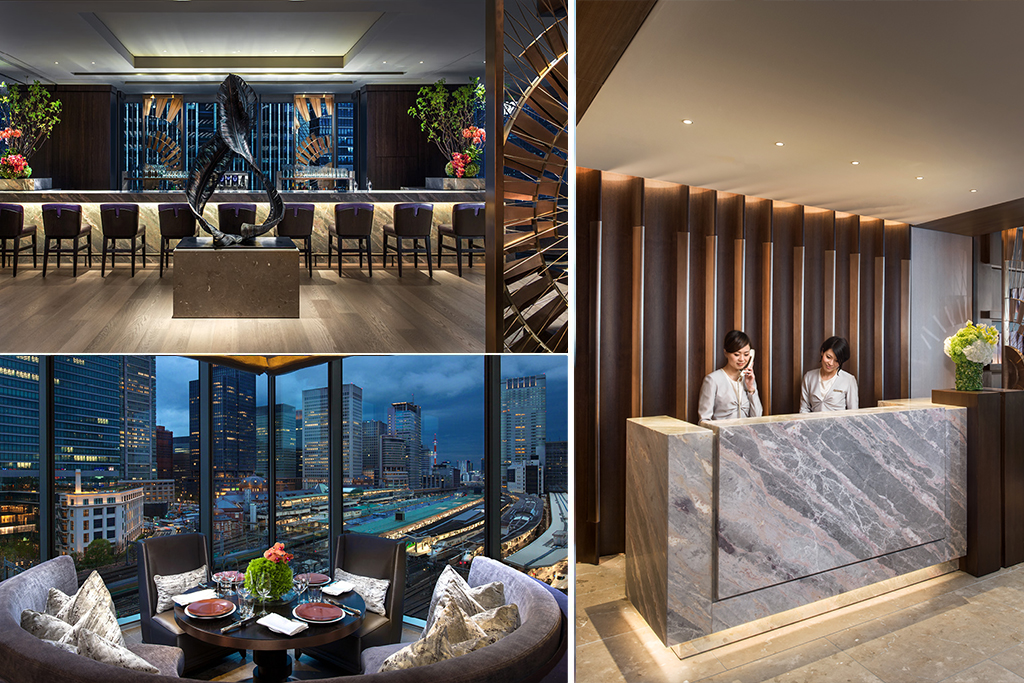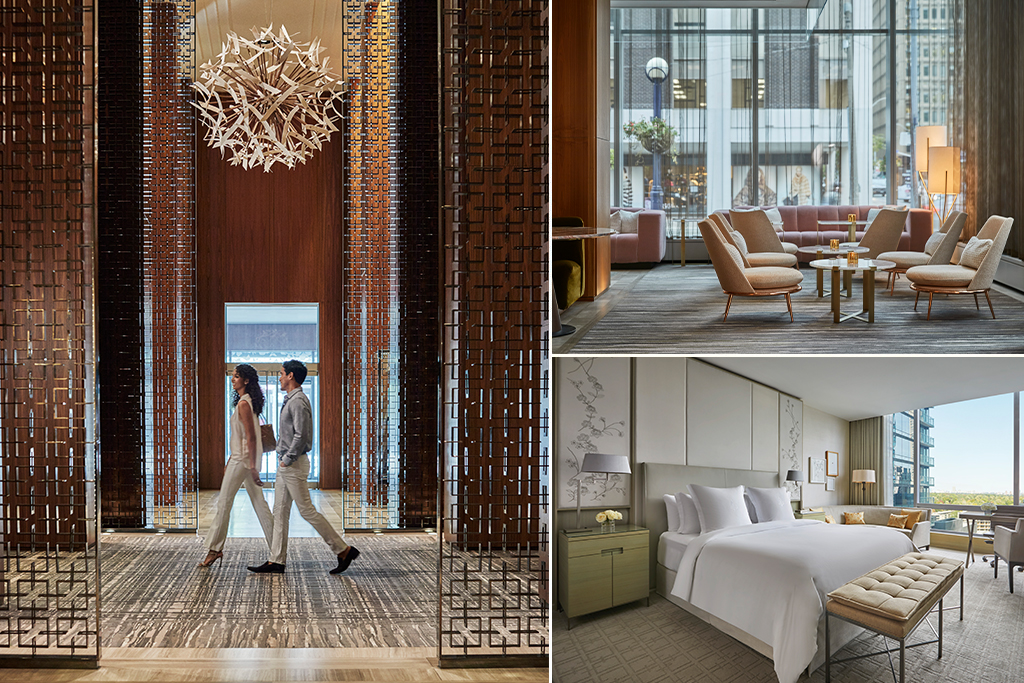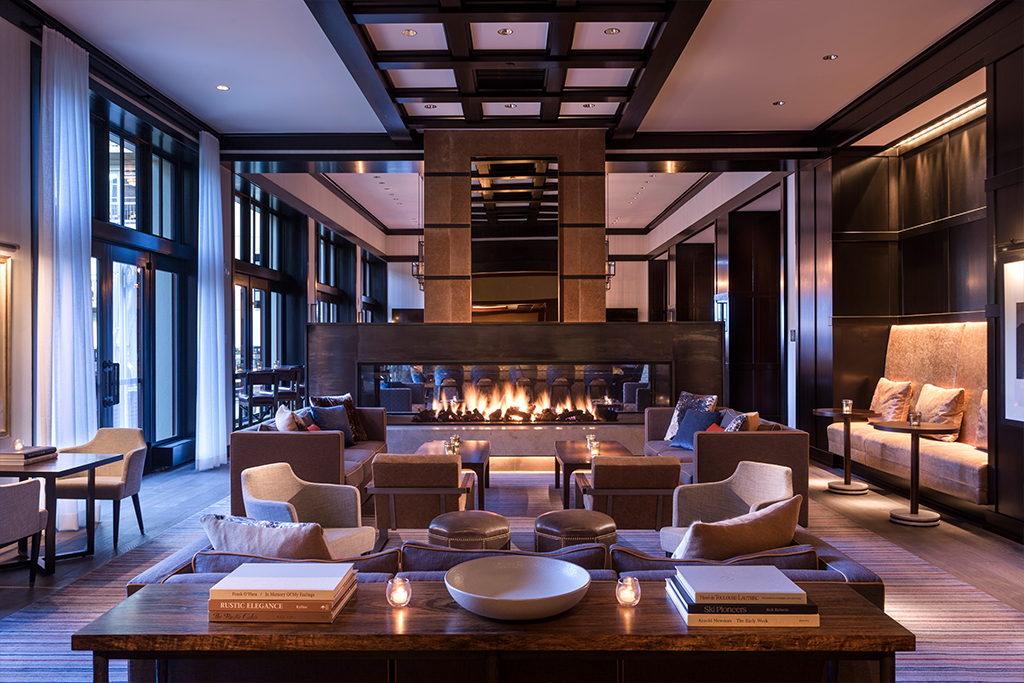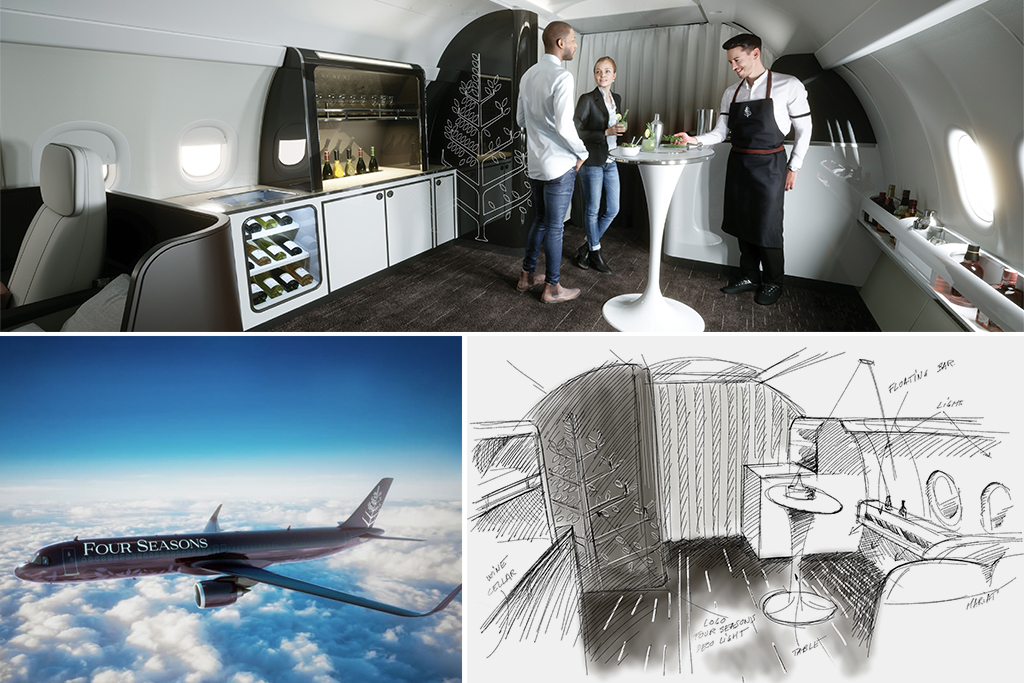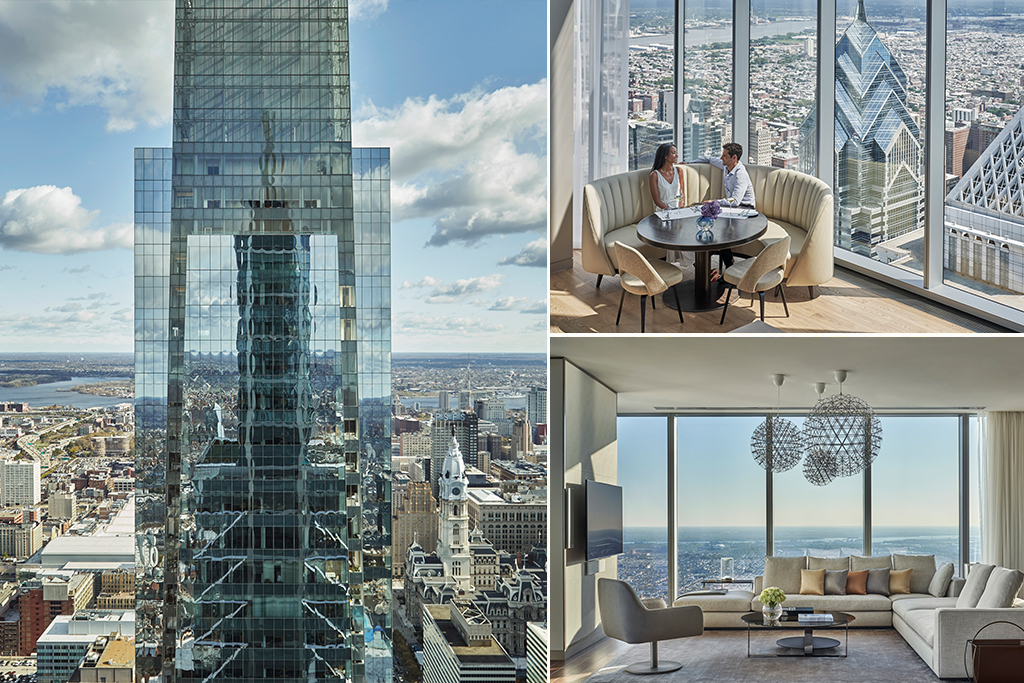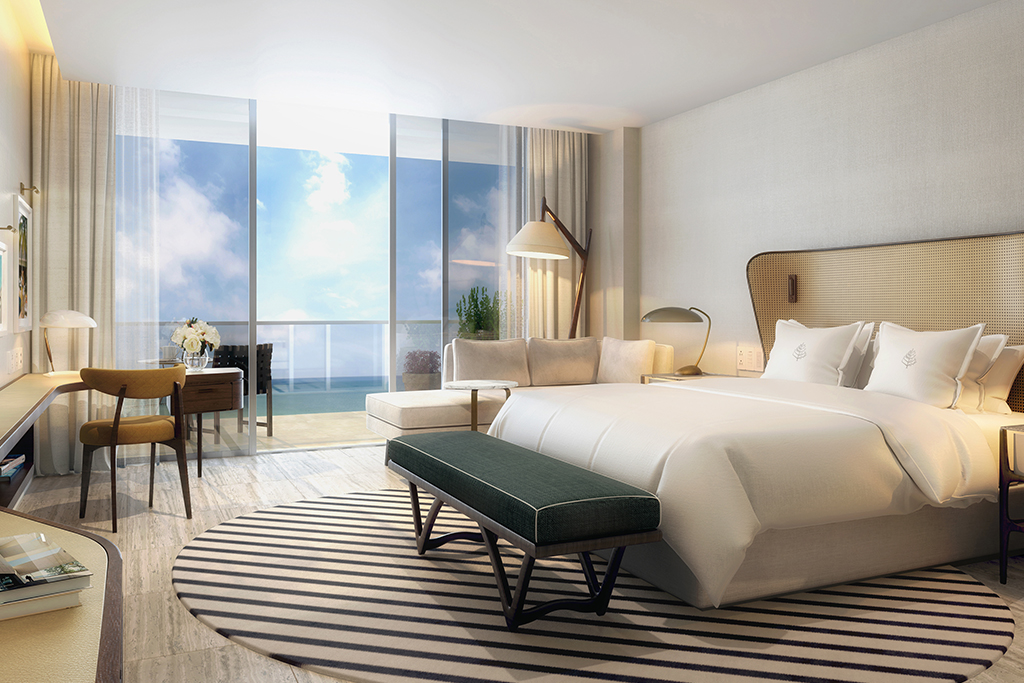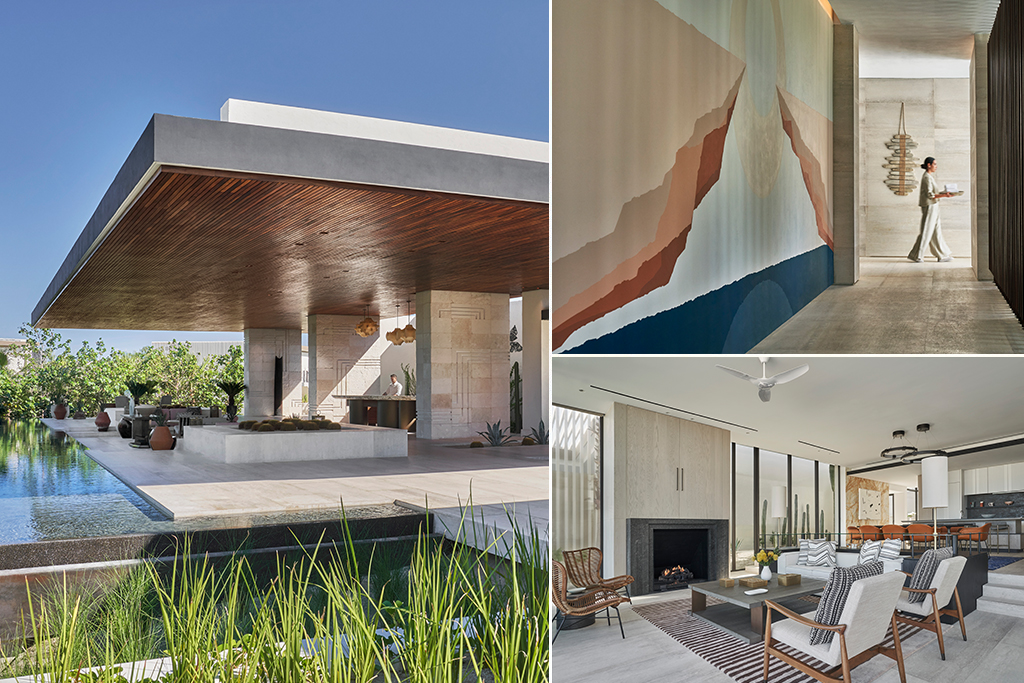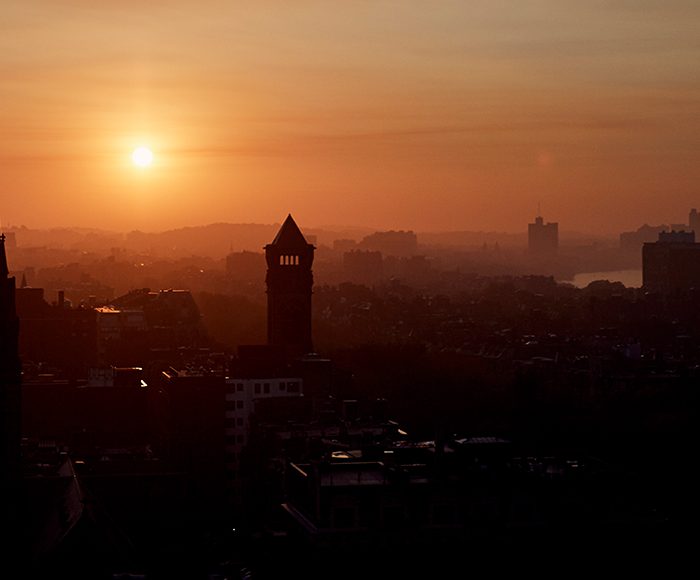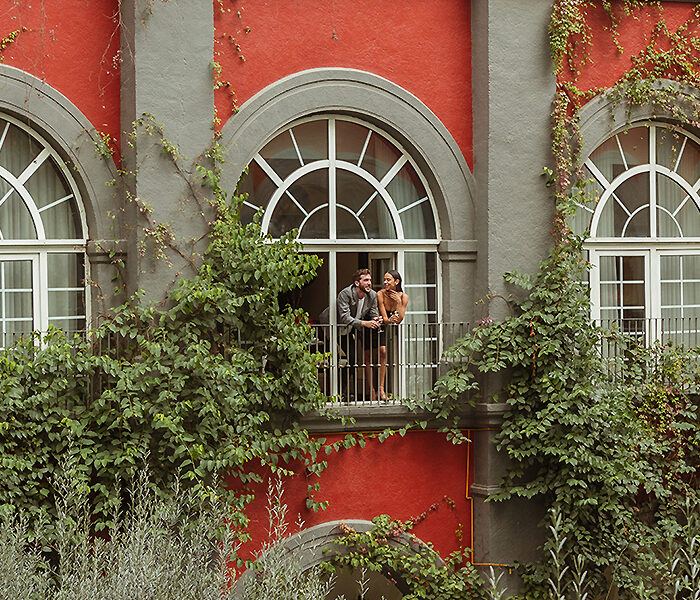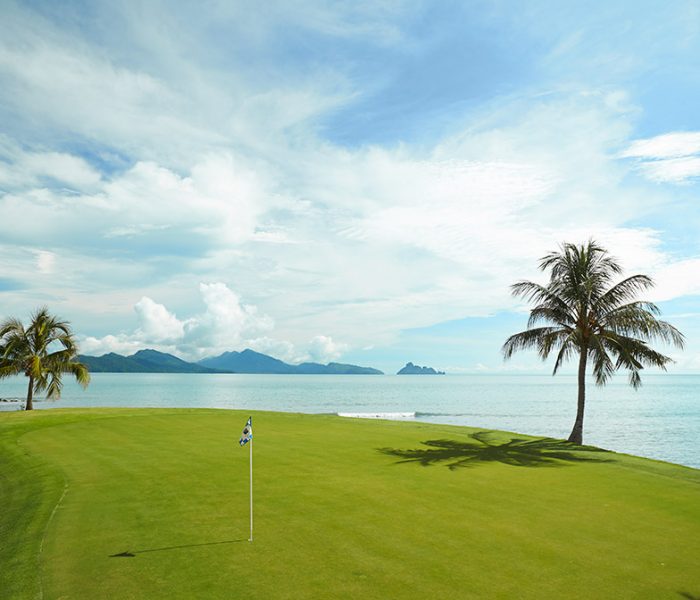Over the past decade, the aesthetic of Four Seasons has evolved from a more traditional design language of flower patterns and chintzes to a contemporary, clean-lined look that evokes serenity.
The catalyst for the shift: Four Seasons Hotel Tokyo at Marunouchi. Toronto-based firm Yabu Pushelberg eschewed excessive colour and pattern when designing the Hotel in 2002 and instead embraced Japanese minimalism. The clean sensibility of the rooms created a feeling of calm that resonated with travellers seeking home-away-from-home comfort.
In 2013, Yabu Pushelberg drew on that minimalism when it masterminded the look of Four Seasons Hotel Toronto. The room was deeply restful – rich in materials, quality and execution – with a neutral palette. That Hotel was the continuation of a design journey to create the room of the future, something that speaks to all guest needs.
The design team consulted scientific research to better understand how a guest feels in a room, and used that information in a thoughtful interpretation of luxury. The traditional rectangular desk was replaced by a round activity table with two chairs, because most people now work from laptops or iPads while lounging in their room.
A master light switch was placed beside every bed so that a guest wouldn’t have to get up out of bed to turn off lights. Each guest room would feel like a sanctuary – a place to rest and recharge – whereas public spaces, such as restaurants and bars, would energize guests and encourage conversation.
To likewise enliven its space, the lobby bar at Four Seasons Resort and Residences Vail was moved from a corner hidden behind the concierge desk to the centre of the lobby in the Hotel’s main entry. The move transformed a rarely used space into a social hub, not just for guests but also for the community.
Similarly, the new Four Seasons Private Jet, a custom-outfitted Airbus A321neo, will offer its 48 passengers the energy of a standing social area where guests can connect with one another as well as with a rotating crew of mixologists, chefs and other experts. On a flight from Geneva to Paris, for example, a master sommelier could introduce guests to rare vintages from the regions on the itinerary.
The design ethos today is more minimal, but it’s far from cold and spare, and a high priority is a sense of place. Set atop the 1,121-foot (341-metre) Comcast Technology Center, Four Seasons Hotel Philadelphia at Comcast Center has been a fixture of the city’s skyline only since 2019.
Designed by Norman Foster of Foster + Partners, the Hotel reminds guests of the city’s long-standing reputation as a hub of art and ideas. Extending across the ceiling and up the stairs, artist Jenny Holzer’s For Philadelphia is a moving installation of nine electronic displays; the words of poets, architects, visionaries and children express the spirit of the city and flow colourfully throughout the space. In the vast atrium is the largest public art commission by British artist Conrad Shawcross, Exploded Paradigm, in which the artist explores the pyramid-shaped tetrahedron and its possibilities.
The Fort Lauderdale and Los Cabos properties, as well as the restored hotel in Athens, are now the standard-bearers for fusing the new design vision with roots in place and history. Longtime Four Seasons interiors collaborator Meyer Davis has been tasked with bringing Athens’ landmark Astir Palace back to its 1960s heyday.
British designer Tara Bernerd was chosen to design Fort Lauderdale for her ability to engage the guest with beautiful yet surprising, quirky touches while hitting all the notes of functionality. Since Fort Lauderdale is the yachting capital of the southern United States, Bernerd drew on nautical inspiration as a framework. The coastal area is set to become Miami’s Riviera, and the design scheme for the building has to be timeless.
“We harkened back to the golden age of Chris-Craft yachts and capri pants, where we sought to evoke the elegance and sophistication of the era,” Bernerd says. “This led us to choose a patterned travertine floor with exquisite polished joinery details paired with mid-century furniture and a calm, fresh palette. However, the key here is not to be too literal with any of our influences, so that the design feels more organic, as if it has been there forever.”
The new Four Seasons Resort Los Cabos at Costa Palmas feels like a natural extension of its surrounding landscape and respectfully reflects Mexican architectural tradition – no terracotta tile roofs or plaster walls. “All of the work draws from a distillation of the building culture – especially the materiality and integration of plantings and colour,” says Scott Glass of Guerin Glass Architects. His team used geometry and texture to harness the local landscape and the views of the sea and mountains, deliberately keeping the scale of the buildings small to better integrate with the topography.
The goal is for the design to enrich the travel experience. At Four Seasons, every hotel and resort is designed with intention, anchored in place, comfortable for guests, effortlessly luxurious and seamlessly wired for the modern traveller.
YOUR JOURNEY BEGINS HERE
Discover a new world of design.


